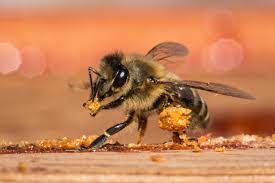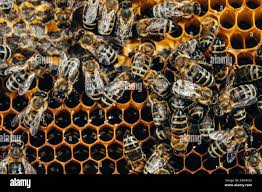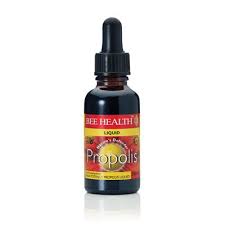Nature's little helper
Posted on March 24
Hello again, I hope that you are well. As I write, it is a beautiful sunny day letting us know that spring has arrived. I like spring, new life and new growth. A bit of a metaphor for new hope. When you see the news these days it’s good to switch off and enjoy the sunshine and the daffodils.

I like daffodils. They are dependable and come back every year to give an early splash of colour after some gloomy and colourless days of winter. I like people like that as well. So, it’s got me thinking of nature and natural ways to help healing rather than industrial pharmaceuticals. One product I have used 20+ years, both at home and at work is propolis.

What Is Propolis?
Did you know that honey isn’t the only thing that bees make? Bees also produce a compound called propolis from the sap on needle-leaved trees or evergreens. When they combine the sap with their own discharges and beeswax, they create a sticky, greenish-brown product used as a coating to build their hives. This is propolis.
Thousands of years ago, ancient civilizations used propolis for its medicinal properties. Greeks used it to treat abscesses. Assyrians put it on wounds and tumours to fight infection and help the healing process. Egyptians used it to embalm mummies.

Healing Compounds In Propolis
Researchers have identified more than 300 compounds in propolis. The majority of these compounds are forms of polyphenols. Polyphenols are antioxidants that fight disease and damage in the body.
Specifically, propolis contains the polyphenols called flavonoids. Flavonoids are produced in plants as a form of protection.

Wounds
Propolis has a special compound called pinocembrin, a flavonoid that acts as an antifungal. These anti-inflammatory and antimicrobial properties make propolis helpful in wound healing. One study found that propolis can help people who have had traumatic burns heal faster by speeding up new healthy cell growth.
Another study found that a topical propolis alcoholic extract was more effective than a steroid cream in reducing mast cells in oral surgery wounds. Mast cells are associated with inflammation and slowed wound healing.
So, it’s great to have in for oral ulcers and sores as well as cuts, grazes, and burns. The Bee Health propolis company is based in Carnaby East Yorkshire so local to us as well. We use this and have for years.

Until next time. Take care and be good.

